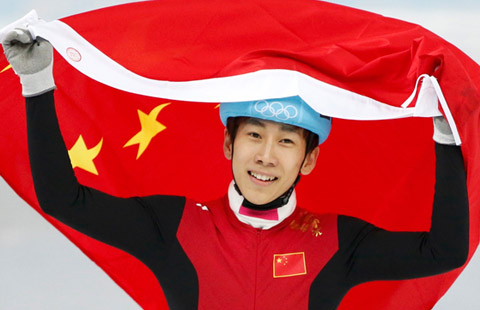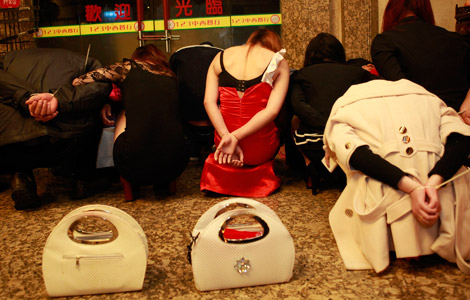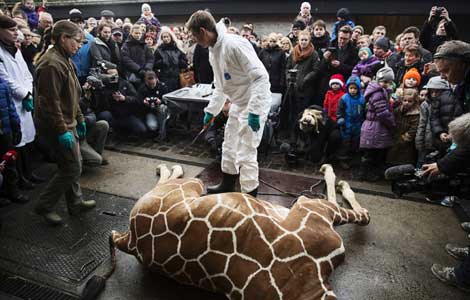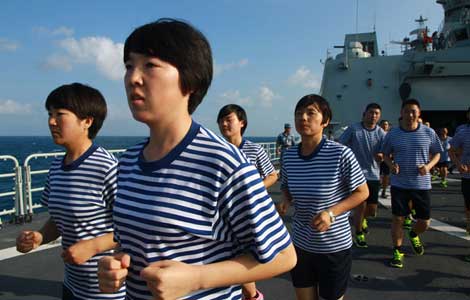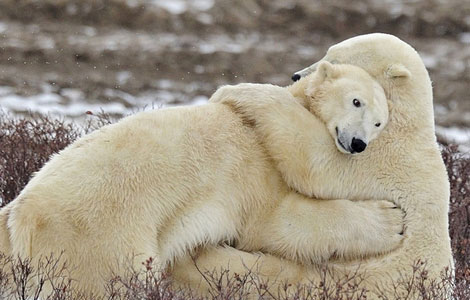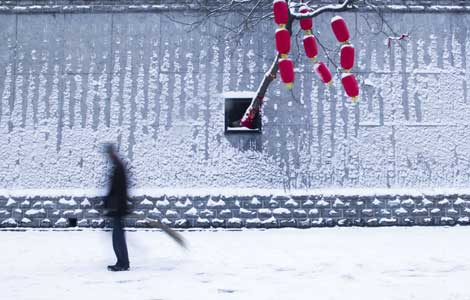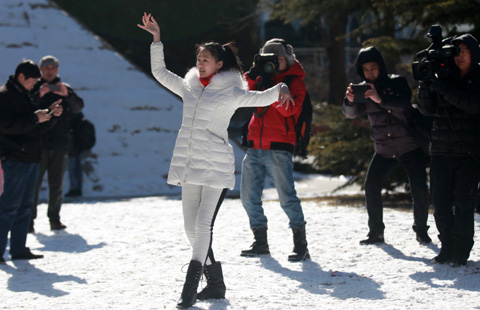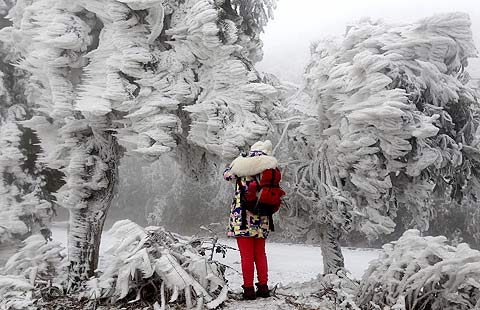Kerry seeks to 'rule out' possibility of conflict
Updated: 2014-02-11 01:44
By LI XIAOKUN and MO JINGXI (China Daily)
|
||||||||
US has expressed disappointment over Abe's visit to Yasukuni shrine
US Secretary of State John Kerry will seek to ease tensions between Tokyo, Beijing and Seoul as he confronts a worsening dilemma for Washington in East Asia, according to observers.
Kerry will visit Asia from Thursday to next Tuesday, stopping off in Seoul, Beijing, Jakarta and Abu Dhabi, US State Department spokeswoman Jen Psaki said in a statement on Sunday.
It will be Kerry's fifth visit to Asia in 12 months.
In Beijing, Kerry will "relay the message that the United States is committed to pursuing a positive, cooperative, comprehensive relationship and welcomes the rise of a peaceful and prosperous China that plays a positive role in world affairs", Psaki said.
However, Wang Xinsheng, a professor at Peking University's history department, said, "As tensions between China and Japan keep growing, the US wants to stop the two nations from irritating each other and to rule out the possibility of an armed conflict in the region. Kerry's visit obviously serves this purpose."
Japan's relations with China and the Republic of Korea, which have been overshadowed by historical and territorial disputes, deteriorated further late last year when Japanese Prime Minister Shinzo Abe visited the Yasukuni shrine, which honors Japanese dead in World War II, including class-A war criminals.
Beijing said the visit has shut the door to high-level communication. Similarly, the ROK foreign ministry on Friday dismissed the possibility of a top-level meeting with Japan, which Japanese media said is scheduled for March on the sidelines of a nuclear security summit in the Netherlands.
The White House has also expressed disappointment over Abe's shrine visit.
The Financial Times said on Thursday that US President Barack Obama "has been drawn into the increasingly tense relations between America's two closest allies in the region, Japan and South Korea", which have been further escalated by the "actions and rhetoric of Japanese Prime Minister Shinzo Abe".
Abe's visit to the Yasukuni Shrine "hurts us, it puts us in a difficult position," Kurt Campbell, the former top State Department official for East Asia, told the newspaper. "Tensions between Japan and South Korea cause enormous anxiety in Washington."
Japan is not on Kerry's itinerary, although US officials seldom skip Japan when they visit China and the ROK.
However, Kerry met Japanese Foreign Minister Fumio Kishida in Washington on Friday, stressing the US commitment to the defense of Japan and their closer security cooperation.
Tao Wenzhao, a senior research fellow of US studies at the Chinese Academy of Social Sciences, said the US has urged Japan several times to improve its relations with China and the ROK after Abe's shrine visit.
"Also, the US is unwilling to see the trend of growing right-wing forces in Japan. It is likely that Kerry will reaffirm Washington's stance in China and the ROK," he said.
Tao said Kerry's visit is also to prepare for Obama's planned tour of Asia in April to promote the US "pivot" to the region.
However, Reuters said on Sunday, "Kerry will have to work hard to counter a perception among many in Asia that Obama's pivot is more rhetoric than substance."
The news agency cited concerns highlighted by canceled plans for the president to attend two summits in Asia. These were abandoned because of a budget crisis at home in October.
Kerry stood in for Obama at those meetings, which were followed by visits to Tokyo, Beijing and Seoul by US Vice-President Joe Biden.
But Kerry has faced criticism for the amount of time he has devoted to peace efforts in the Middle East, rather than rebalancing the military and economic focus toward Asia.
In Beijing and Seoul, he is also expected to discuss concerns about Pyongyang's nuclear program, the US State Department said.
Contact the writers at lixiaokun@chinadaily.com.cn and mojingxi@chinadaily.com.cn
Most Viewed
Editor's Picks

|

|

|
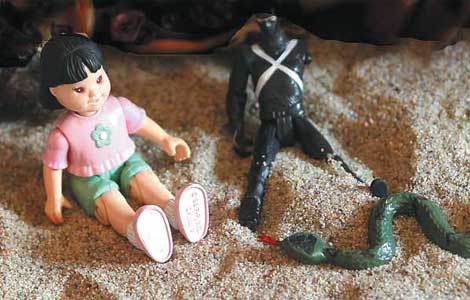
|

|

|
Today's Top News
China sends contingent to US-Thailand drill
Tokyo unveils armed forces reforms
Liaison mechanism to link Straits
Kerry seeks to 'rule out' possibility of conflict
Official cars to be auctioned in NE China city
Joint operation ensnares poachers
Family-raised poultry rises as new H7N9 source
China's largest private charity elects new chiefs
US Weekly

|

|

